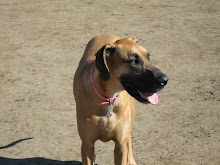When you get a new pet, one of the top priorities is to make sure that he adjusts well to his new home environment. While humans are usually excited about their new furry family member, a new dog or puppy might not understand right away what’s expected of him or what it will be like.One of the best things you can do is to provide consistency for your new dog. Creating a schedule will be instrumental in helping him to adjust. This means that you should choose times of day for feeding, walking, playing, training and quiet time… and do your best to stick to them every day.Training is another aspect that can help immensely in pets’ adapting to their new home. While you don’t want to overdo it by expecting your dog to be completely trained the first day, spending some time each day teaching him to “sit” and “stay” can help your new dog or puppy to feel more comfortable in the family pack. By providing leadership, you’re helping him realize where he stands in the family pecking order, which will make him feel relieved about knowing, and will also help set the tone for his relationship with your family for many years to come.Children will need extra supervision, especially during the first few weeks of having a new puppy or dog. It is very exciting for kids to get a dog, but it’s also important to ensure that your new pet has some quiet time each day and that children are not too overwhelming in their enthusiasm. Set clear guidelines early, including staying away from the dog’s food and water, not going in his crate and giving him his own personal space, just as we all need sometimes.Another thing that can help avoid problems is to supervise your new puppy or dog at all times. Even if you have a fenced yard, it is a good idea to personally leash walk your dog to a designated area to “do his business,” and oversee whatever else he is doing in the yard. This can help create good habits such as using a designated bathroom area, while also avoiding problems such as digging, fence jumping, damaging landscaping, chewing things and more.Of course, diligent supervision inside the house is best for the first several weeks as well. Puppies will probably require strict supervision far longer than that.Imagine that you moved to a foreign country that had very different traditions than you were used to. It’s likely that this is how your new dog or puppy feels. Just as you might be nervous, reserved or excited in your new country, it’s probable that your pet feels the same way about his new home. By taking some time to help him learn the “lay of the land,” allowing him some time and space to adjust, and providing love and consistency, you have the best chances of helping your pet become the lifelong friend you envisioned!
Article written by Lori VerniLori Verni is a freelance writer, Certified Master Trainer and owner of Best Paw Forward Dog Education in Holly Springs, NC. She also proudly brings you all of the free articles on FreeDogTrainingInfo.com, and has a book available: Everything You Need to Know About House Training Puppies & Adult Dogs. The book can be purchased at www.FreeDogTrainingInfo.com
Keywords: dog toys, dog beds, dog collars, pet supplies, dog training, dog health
Subscribe to:
Post Comments (Atom)




No comments:
Post a Comment